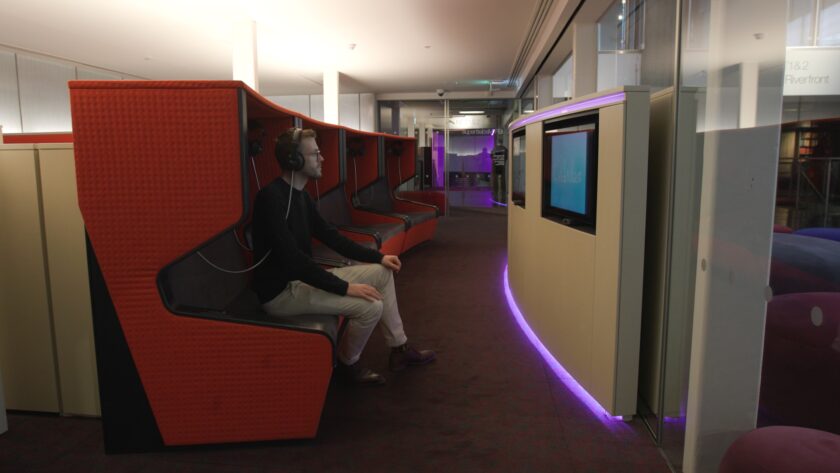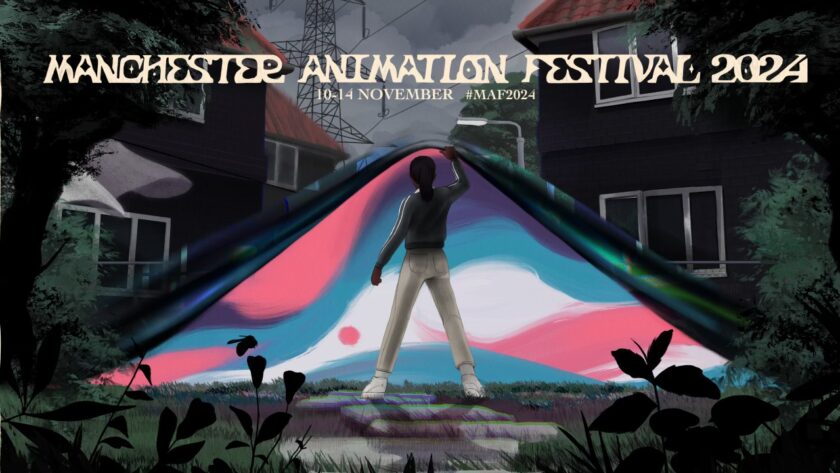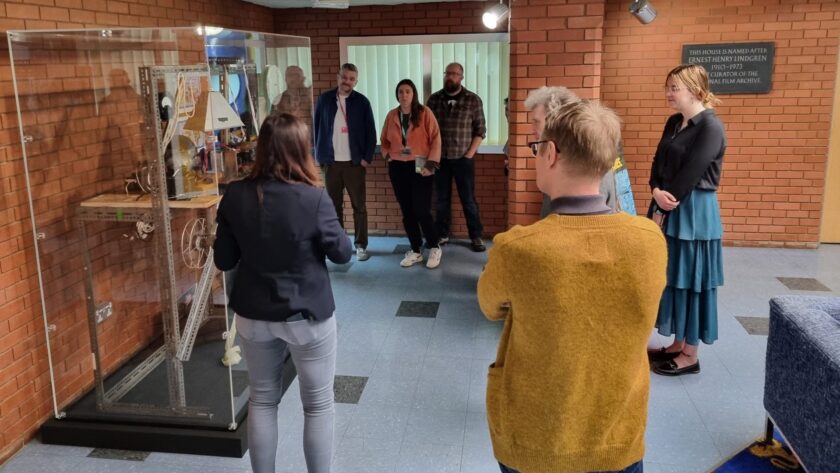World TV Day 2024

Last Thursday (21 November) we marked World TV Day by shouting from the rooftops about the 150,000+ television programmes available to view via the BFI Mediatheque.
Lisa Kerrigan, our Senior Curator of Television, authored a fascinating article exploring the type of material you can discover, shining a particular spotlight on programmes that were ‘on the box’ on previous World TV Days.
Plus, we published the latest addition to our ‘Inside the Archive’ video series, which explores how we make content available via the platform. Take a look at both via the links below.
World TV Day 2024: how archive TV provides a portal to the past
– Alex Prideaux, Marketing & Events Manager
Manchester Animation Festival

Archives are not just about film’s past, but also its present and its future. Curators attend festivals to watch the best new work, meet the creators behind them, and gauge the pulse of the art and industry. As the BFI National Archive’s curator of animation, the Manchester Animation Festival – affectionally known as MAF – is always highlighted in my calendar, and I was fortunate to attend again this year.
Celebrating its 10th birthday, MAF put on a typically bumper programme of big films, great guests, and engaging talks. It’s hard to say whether the audience was more excited by the presence of Nick Park and Merlin Crossingham, co-directors of the forthcoming Wallace & Gromit: Vengeance Most Fowl (2024), or about getting the chance to meet the plasticine puppet stars. But such opportunities are what will inspire future creative trailblazers.
It’s the insight into the stories behind the films, the reaction of an audience in the theatre, and the discussions over food and drink after the screening that all help guide our decisions of what to propose for preservation in the BFI National Archive. My job now is to reach out, explain and enquire, to begin the logistical and legal process of acquiring a work into the collection. And it’s the experience of attending great festivals like MAF that helps sustain the drive to add new inspiring, provocative and essential works to our 120+ years continuity of screen heritage.
– Jez Stewart, Curator of Animation
Exploring sustainability at the BFI National Archive

In late September, the archive opened its doors to all Screen Heritage Fund awardees, for a day of discussions around environmental sustainability in archiving.
Attendees included representatives from eight different screen archives from around the UK, Claire Buckley, Tenaya King, and Thiago Haberli from Julie’s Bicycle (a non-profit mobilising climate action in the culture sector) led the day. For those who don’t know, the BFI and Julie’s Bicycle are working in partnership to deliver an environmental programme to support the screen sector that runs until 2026. Keir Powell-Lewis and Duncan McKeich were also on hand as the fountains of knowledge for all things BFI and sustainability.
I was able to attend as a member of the Screen Heritage funded project, Our Screen Heritage. I must confess my lack of knowledge of the environmental issues the archives face left me fearing what my contribution could be. Luckily for me, it was a day about learning, and there was a wealth of information from those in attendance. I gained knowledge both about the regional national archives and the BFI itself. For instance, Duncan has calculated a massive 70% of the BFI National Archive’s energy consumption comes from the vaults.
The day started by sharing the successes, however big or small, the archives have had since engaging with sustainability work. This ranged from choosing to only serve vegetarian food at events, to a project that explores how the temperature and humidity of a vault affects energy usage and CO2 emissions. It was enlightening to see how each component that forms an archive is considered when organisations make plans to be more sustainable.
When we discussed the challenges faced by the archives, it was clear these are often unique to each organisation. Some archives are in heritage-listed buildings, which restricts how they can develop their sites. While others are reckoning with their deep freeze film storage and the impact it has on the environment. The difficulties in measuring a digital footprint were also highlighted as a concern for many, and it’s clear that it is a shared issue for the industry. There is not an obvious answer for all these challenges, but starting to explore each challenge and how we can create an action plan to address them is a critical first step.

To round off the day, the attendees were given a much-anticipated tour of the BFI National Archive by Duncan. Sustainability has an amazing power to bring people together. On our first stop of the tour, there was a commotion when Jane from the East Anglian Film Archive spotted her old mentee the Film Conservator Lynn Loo. Jane had formerly worked at the BFI around two decades ago and was delighted to catch up with former colleagues throughout the building as we made our way round.
Although discussing environmental sustainability can feel at times bereft of hope; as if we are struggling against an ever-surging current – it was heartening to have such a positive day where people came together to seek solutions and constructive steps forward. The Julie’s Bicycle team were honest and helpful in highlighting to us that organisations will need to be agile to the environmental realities, as the landscape is ever changing when it comes to sustainability work.
A big shout out to Jo Molyneux for helping to make the day run seamlessly. Also thank you to Keir, the Julie’s Bicycle team, and the Screen Heritage Fund team for organising the day. It highlighted the importance of collaborative work and open dialogue between organisations. I’m looking forward to more discussion and knowledge sharing like this going forward.
– Francesca Worricker, Project Administrator (Our Screen Heritage)
The Inside the Archive blog is supported by the BFI Screen Heritage Fund, awarding National Lottery funding.
